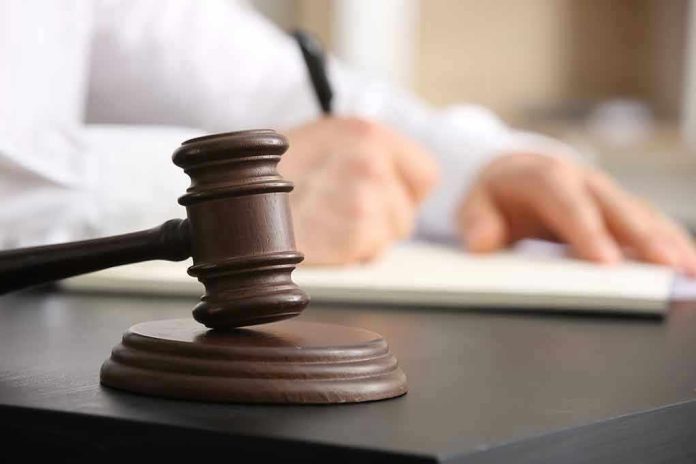
A judge’s unexpected courtroom decisions in the Charlie Kirk murder case reveal the delicate balance between justice and public spectacle in America’s most politically charged trial.
Story Highlights
- Judge Tony Graf allows accused killer Tyler Robinson to wear civilian clothes during pretrial proceedings
- Court restricts media from photographing Robinson in shackles to prevent jury prejudice
- Media access decisions remain pending as case draws national attention
- Former prosecutor calls it potentially “the trial of the century for Utah”
Judicial Restraint in a High-Stakes Case
Judge Tony Graf faces an unprecedented challenge in Utah’s Fourth District Court. The September shooting death of conservative activist Charlie Kirk has transformed a murder case into a potential political powder keg. Graf’s recent rulings demonstrate judicial wisdom prioritizing fair trial rights over public spectacle, even when the entire nation watches.
The judge’s decision allowing Robinson civilian clothing during pretrial hearings protects constitutional presumption of innocence. Orange jumpsuits and shackles create visual prejudice that can taint potential jurors before evidence presentation. Graf understands that justice requires separating emotion from legal process, regardless of public pressure.
Media Circus Meets Constitutional Rights
Graf’s media restrictions reflect growing concern about trial by television. His prohibition against filming Robinson in restraints acknowledges modern reality where courtroom images become political ammunition. The judge deferred broader media access decisions, recognizing the complexity of balancing transparency with defendant rights.
Former prosecutor Nathan Evershed’s assessment as Utah’s potential “trial of the century” underscores unprecedented stakes. Political assassinations remain rare in America, making this case a test of judicial independence. Graf must navigate between legitimate public interest and preserving Robinson’s constitutional protections.
Security Concerns Drive Courtroom Protocol
The October hearing cancellation and January 2026 rescheduling suggest heightened security protocols. Political violence cases attract dangerous attention from extremists across the spectrum. Graf’s cautious approach reflects judicial responsibility to protect all participants while maintaining legal proceedings integrity.
Law enforcement agencies coordinate unprecedented security measures around this case. The victim’s national conservative profile and alleged political motivations create volatile circumstances. Graf’s procedural decisions demonstrate understanding that courtroom security extends beyond physical safety to preserving judicial process sanctity.
Precedent Setting for Future Political Cases
Graf’s rulings establish important precedents for handling politically sensitive prosecutions. His emphasis on jury impartiality over media convenience shows proper judicial priorities. These decisions may influence how courts nationwide approach cases involving public figures and alleged political violence.
The case tests America’s judicial system capacity to deliver impartial justice amid political polarization. Graf’s measured approach suggests courts can rise above partisan pressures when judges prioritize constitutional principles. Robinson deserves fair trial regardless of victim identity or public emotions surrounding the case.
Sources:
KFOX-TV: Level of media access remains unclear in Tyler Robinson case
KUTV: Judge rules Tyler Robinson allowed to wear civilian clothes, must wear restraints



